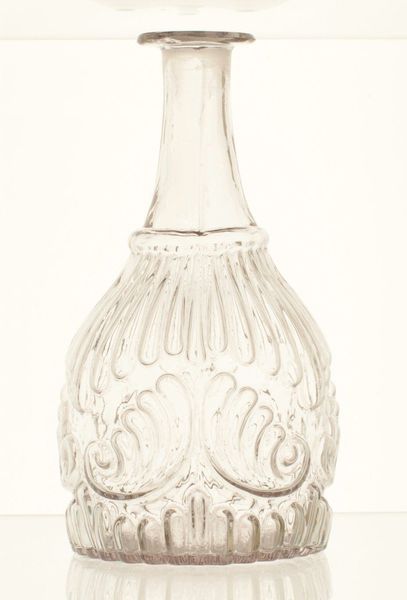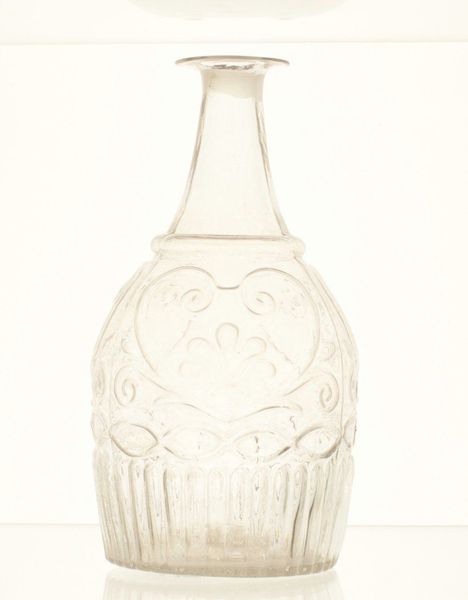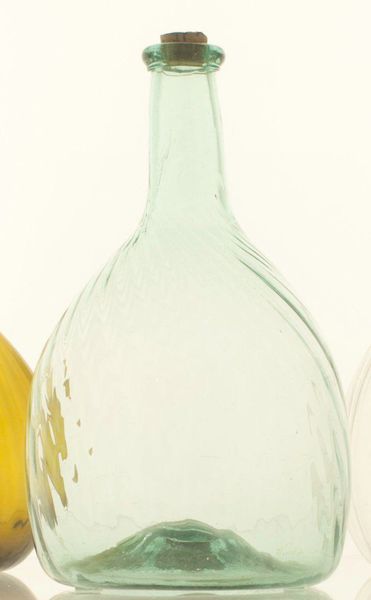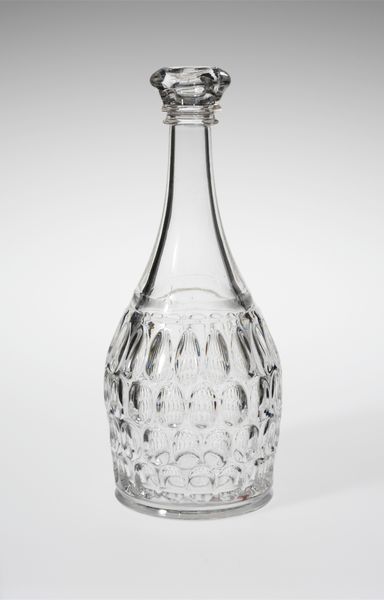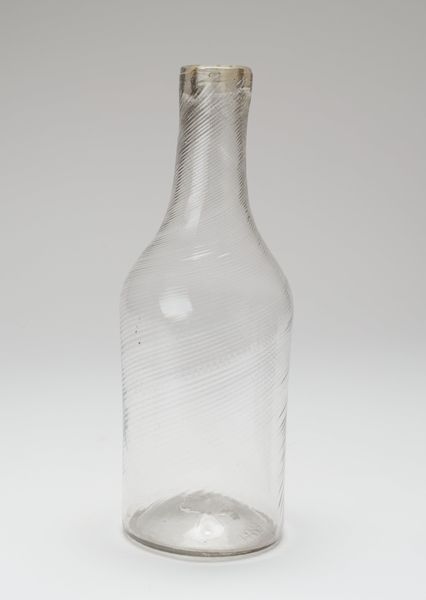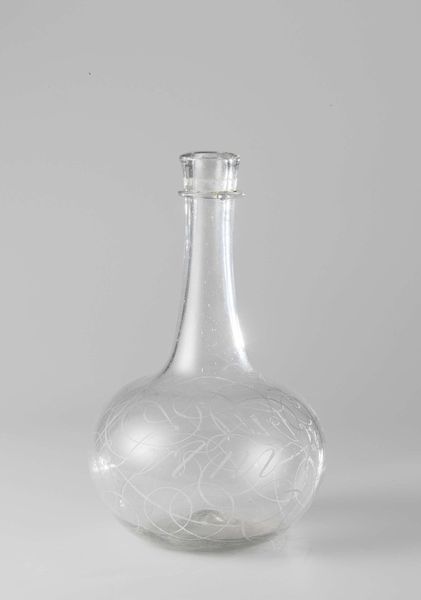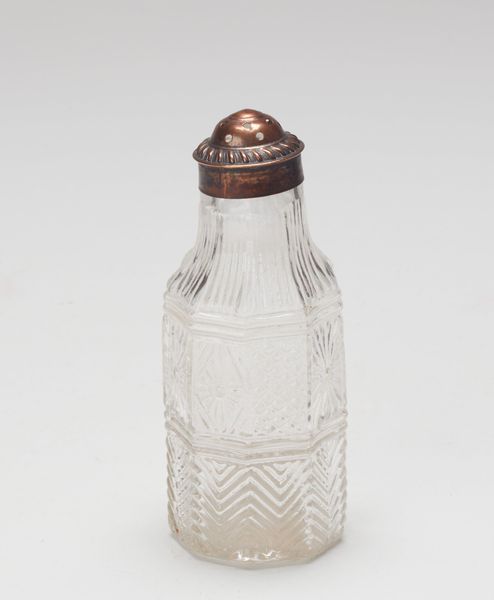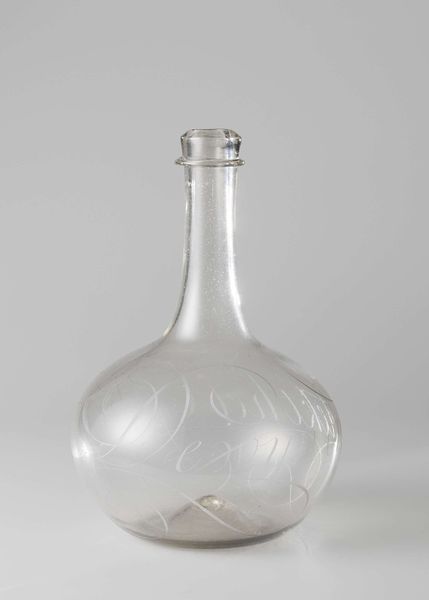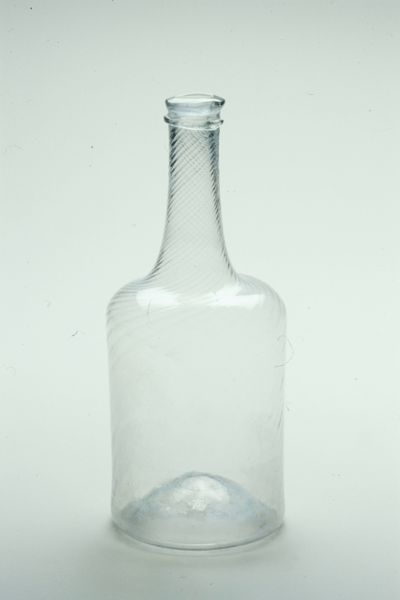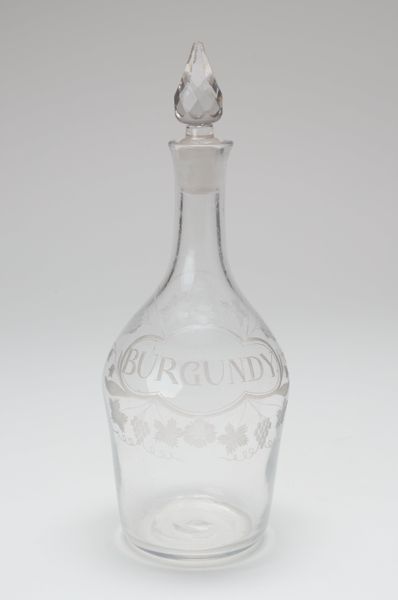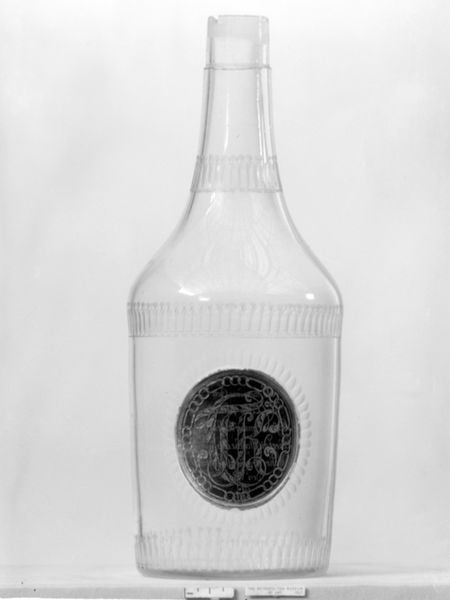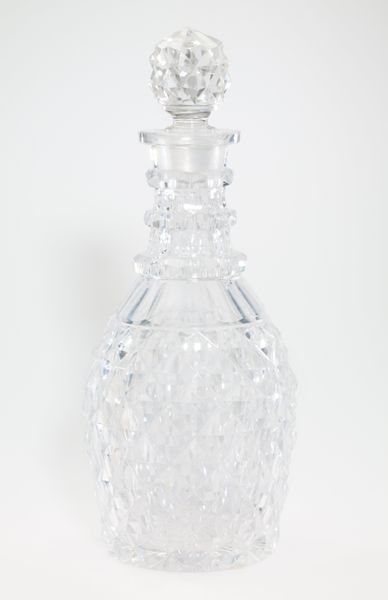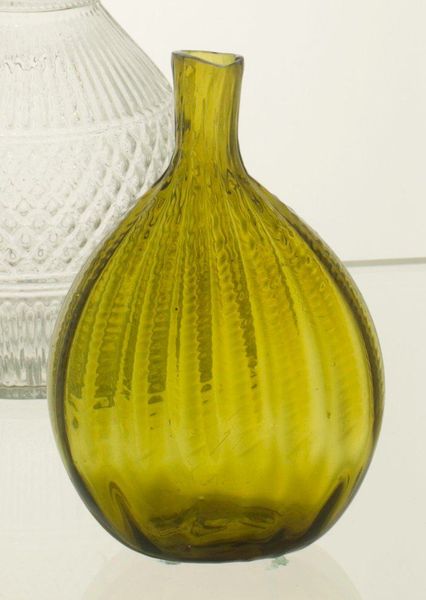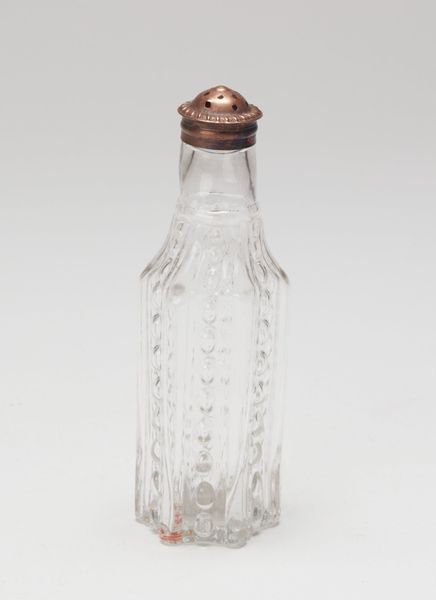
glass
#
baroque
#
glass
#
product photography
#
decorative-art
Dimensions: 11 x 4 x 4in. (27.9 x 10.2 x 10.2cm)
Copyright: Public Domain
Editor: So, we’re looking at a decanter with a stopper from the 18th or 19th century, housed at the Minneapolis Institute of Art. It's glass, and I’m struck by how commonplace yet intricate it is. I wonder, what can this tell us about the social history of such an object? Curator: An excellent question. Think about the rise of the middle class in that period. Objects like this weren't just functional; they became markers of status. Owning finely crafted glassware signaled participation in a culture of refinement and domestic display. Editor: So, it's about more than just serving wine or spirits? Curator: Precisely! Consider where it might be displayed—on a sideboard, in a dining room. These spaces became stages for performing social roles. How would owning such an object affect someone’s sense of belonging or aspiration? Editor: I suppose it democratized luxury in a way. More people had access to items once exclusively reserved for aristocracy. Curator: Exactly. But also, how might the act of drinking change when using such an object? Did it foster a sense of ceremony, of self-importance even? Objects have a way of shaping behavior. Editor: That's fascinating, it becomes an artifact representing aspirational status and ceremony for the rising middle class. Thanks for shining a light on its meaning within a historical context. Curator: My pleasure. Thinking about objects like this reveals how art is interwoven with broader social trends and individual aspirations.
Comments
No comments
Be the first to comment and join the conversation on the ultimate creative platform.
